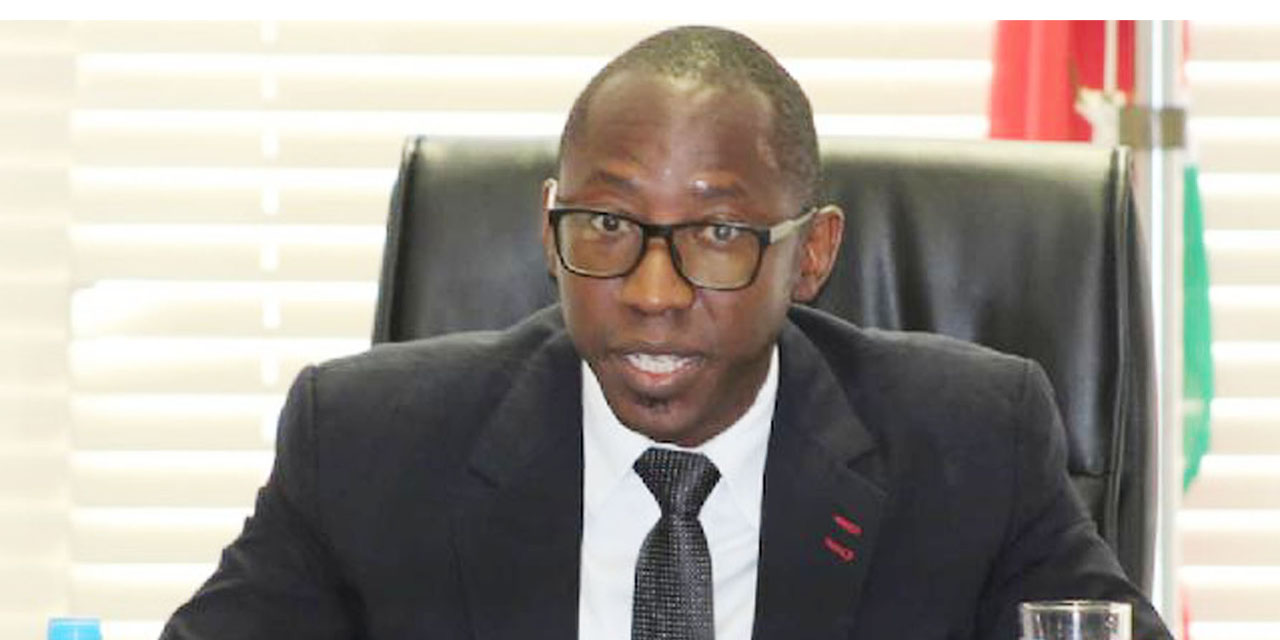Niël Terblanché
Namibia has taken a step closer to establishing a viable trading system in which carbon credits are sold and bought to reduce greenhouse gas emissions and reduce the impact of climate change.
Trading in carbon credits, however, will have to happen within Carbon Markets Framework and in this regard, the national Plan was validated during an event in Walvis Bay.
The Erongo Regional Governor, Neville Andre while welcoming all participants to the validation event, said that climate change continues to impact every aspect of people’s lives.
“The 2030 Low Emissions Agenda for the Paris Agreement on climate change, continue to lead our actions towards sustainable and low-carbon development. For a green recovery and carbon neutrality, it is crucial to take an integrated approach. One that creates synergies and minimises trade-offs between the goals,” Andre said.
The Governor said Namibia has only seven years left to achieve its Sustainable Development Goals (SDGs) by 2030.
“It requires consented efforts from all key stakeholders to achieve these goals. The need to move fast to turn pledges into actions cannot be ignored,” he said.
Andre commended the government of Namibia and Japan for taking bold action to commit to developing the carbon markets initiative which, when fully finalized, will bring multiple benefits to Namibians from all walks of life.
The United Nations Development Programme (UNDP) resident representative in Namibia, Alka Bhatia said that the carbon market framework is not only about policies, regulations, and markets but also about empowering the youth.
“The engagement and active participation of young people are essential for the success of any sustainable development initiative. The energy, enthusiasm, and fresh perspectives that the youth bring to the table are invaluable. By involving young people in decision-making processes, we ensure that their voices are heard, their ideas are considered, and their concerns are addressed,” she said.
Bhatia added that the carbon markets framework will provide an opportunity to create green jobs, promote sustainable entrepreneurship, and empower the youth to be agents of change.
“Carbon markets provide a framework for reducing greenhouse gas emissions, fostering sustainability, and driving innovation. They harness the power of the market to incentivize climate-friendly practices and encourage the transition to low-carbon economies,” she said.
Bhatia was of the opinion that by putting a price on carbon, people would be able to internalize the costs of pollution and unleash the ingenuity and creativity of the private sector to develop cleaner, greener technologies.
“Ultimately, the success of the carbon markets framework in Namibia will contribute to mitigating climate change and fostering sustainable development,” she said.
The Carbon Markets Framework presents a unique opportunity to address multiple challenges simultaneously reducing greenhouse gas emissions, promoting clean technologies, creating employment opportunities, and building climate resilience. By entering carbon markets, Namibia can advance its socio-economic development while transitioning to a low-carbon economy in a cost-effective way.
“By embracing this framework, we are taking concrete steps towards a more sustainable, equitable, and prosperous future for all Namibians,” Bhatia said.
The Japanese Ambassador to Namibia Hisao Nishimaki said that his government provided N$849 million to the UNDP under the project; ‘Japan-UNDP Support for Transition Efforts to Decarbonization’ and the fund was distributed to 23 countries which included Namibia.
“The Government of Japan is committed to providing technical assistance to countries to develop their Carbon Markets and Namibia is one of the beneficiaries,” Nishimaki said.
The ambassador said in Namibia the project is known as ‘The Promotion of Carbon Markets in Namibia for an enhanced implementation of the Nationally Determined Contribution (NDC) towards net-zero emissions and climate-resilient development, in response to the climate emergency’.
“The validation exercise is the culmination of the valiant efforts of all stakeholders on this project and this will place Namibia in the lead among other countries to pilot and support the development of a region-wide applicable framework for Carbon Market mechanisms or Emissions Trading System (ETS),” he said.
Nishimaki said that Carbon Finance has been demonstrated to be one of the most successful and effective ways to de-risk private sector investment and accelerate low-carbon investments in developing countries.
“Carbon Markets have the potential to crowd in large-scale investment to meet the conditional commitment of Namibia’s national development goals through additional public and private climate finance,” Nishimaki said.
Timoteus Mufeti, the Environmental Commissioner said that the Ministry of Environment, Forestry and Tourism (MEFT) in close collaboration with the UNDP facilitated the preparation and adoption of the national framework.
“The framework represents a formal national arrangement for Namibia’s engagement in the Article 6 market mechanisms and the required high-level political endorsement prior to the framework’s implementation,” he said.
Mufeti added that the formal adoption of the framework by the Namibian Government sets out the requisite technical procedures for developing carbon market projects in Namibia under the Paris Agreement’s Article 6 mechanisms.
“This project is establishing a conducive and enabling environment for Namibia to pursue carbon market-based pricing options to allow for more stakeholders to participate in addressing climate change,” he said
According to Mufeti the project will place Namibia among the front-runners in the SADC region to pilot and support the development as well as implementation of the carbon market framework.
The project aims to also create and establish mechanisms for technology transfer, access to technical assistance and ongoing capacity building through multilateral and bilateral cooperation with development partners.




